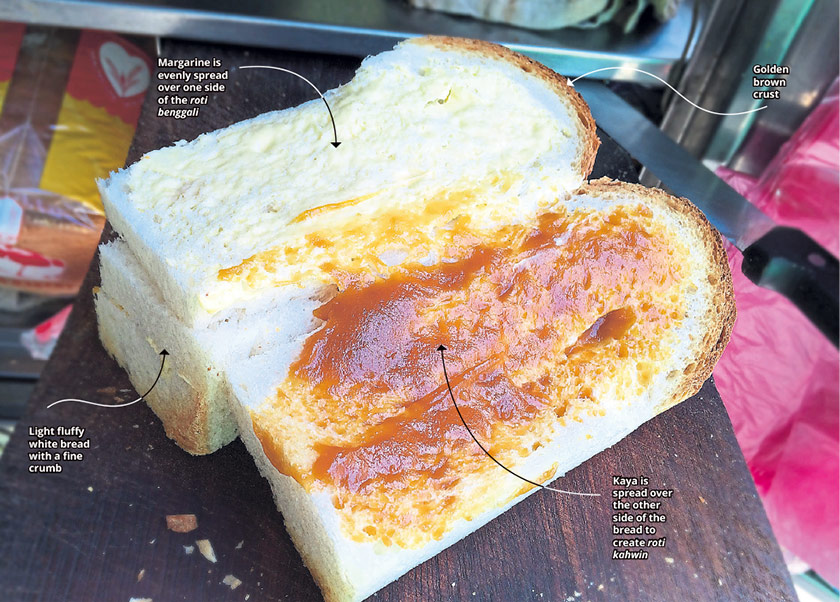GEORGE TOWN, March 1 — Dipped in curry. Spread with rich kaya (coconut jam) and margarine. Dipped in sup kambing. Or simply eaten plain accompanied with a cup of hot black local coffee.
Penang’s very own roti benggali, a fragrant loaf bread with its signature golden, crispy crust and soft, fluffy white crumb, has been a staple for many Penangites for decades.
Contrary to popular belief that this much favoured bread was introduced by the Punjabis, (Punjabis were commonly referred to as Benggali by locals for decades due to a confusion that they were from Bengal), it was actually introduced to Penang by an Indian Muslim from Madras.
Sheik Mohd Ismail set up Roti Penggali (which meant bread shareholders in Tamil) with his friends back in 1928 but the word “penggali” was mispronounced and evolved into “benggali” over the years where the name stuck.
The first ever Roti Penggali bakery, Ismalia Bakery, closed it doors more than a decade ago but the bread is far from extinct as the first bakery had spurred the growth of many similar bakeries producing hundreds of loaves of the fragrant bread on a daily basis. Today, there are only three roti benggali bakeries left in Penang.
Ismalia, which was located in a heritage building along Transfer Road, was taken over by Maliia Bakery which continues its legacy of providing freshly baked loaves of soft white bread with crispy crusts.
In the olden days and even till today, the loaves of bread were sold by travelling bread men on their motorcycles fitted with a metal box-like contraption laden with a variety of snacks and bread.
Inside the metal box, there’ll be stacked loaves of the roti benggali, usually freshly baked on the very same day.
Nowadays, there are more than 100 bread men, often a trade favoured by local Indian Muslims, plying the roads and narrow streets of Penang, especially around residential areas and housing estates mostly in the late afternoons or evenings.
The arrival of the bread man is one that many Penangites could easily identify as he would announce his arrival with the loud “ting ting ting” sound, which he makes by striking a hollow cup-like metal with a metal rod or wooden stick.
Buyers would have to call out to the bread man to stop him, often using the simple “roti, roti!” phrase, and when he stops, walk towards him and place their orders.
The bread man usually sells the roti benggali in loaves instead of slices where each loaf can be cut into four thick slices.
That’s not all, buyers also have the option to choose their choice of spread for their fresh baked loaves as the bread man efficiently slices the bread, loaf by loaf with a long thin knife on a wooden board fitted into the metal box.
The most common spread used by the bread man is a combination of kaya and margarine, where one slice is spread with kaya and another with margarine. This concoction is aptly called “roti kahwin” (literally translated to mean “marriage bread” in reference to the delicious “marriage” of kaya and margarine).
The bakeries also supply the loaves of bread to coffee shops and restaurants where the bread is served toasted, eaten with sup kambing, or dipped with curry.
The three remaining roti benggali bakeries in Penang are:
Maliia Bakery
114, Transfer Road, George Town
GPS: 5.420636,100.330469
Time: 8am – 11pm
Patchee Bakery
529, Jalan Datuk Keramat
GPS: 5.412809,100.315899
Time: 8am – 10pm
Uni Bakery
187-E, Jalan Kampung Pisang, Ayer Itam
GPS: 5.39816,100.282742
Time: 10am – 7pm






















